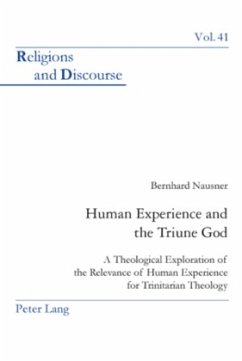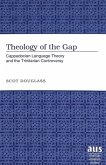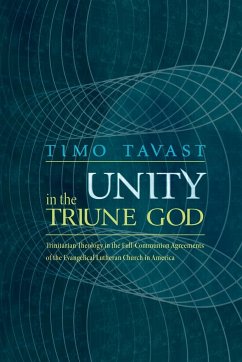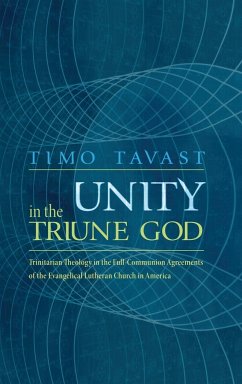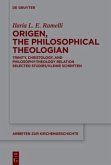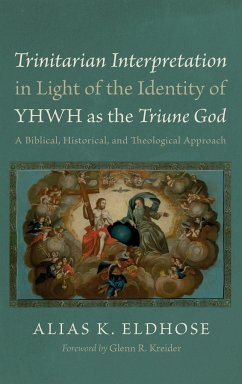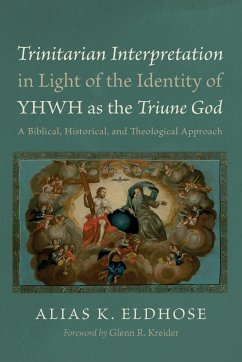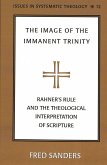The overarching aim of this work is to develop a new account of the doctrine of the Trinity. The author proposes that such an approach is overdue because contemporary trinitarian theology pays insufficient attention to the fact that theology as linguistic discourse is inescapably embedded in human experience. Hence the critical analysis of existing trinitarian constructions (Gunton, LaCugna, Moltmann) is impressively sharp. In response Nausner develops an 'interstitial methodology', working between experience and revelation, refusing both revelational and experiential positivisms. In dialogue with contemporary novels, the human sciences (Frankl, Weizsäcker), philosophy (Levinas) and biblical narratives, he offers an imaginative, original and contemporary way of conceiving the doctrine of the Trinity in relation to human life.
Bitte wählen Sie Ihr Anliegen aus.
Rechnungen
Retourenschein anfordern
Bestellstatus
Storno

